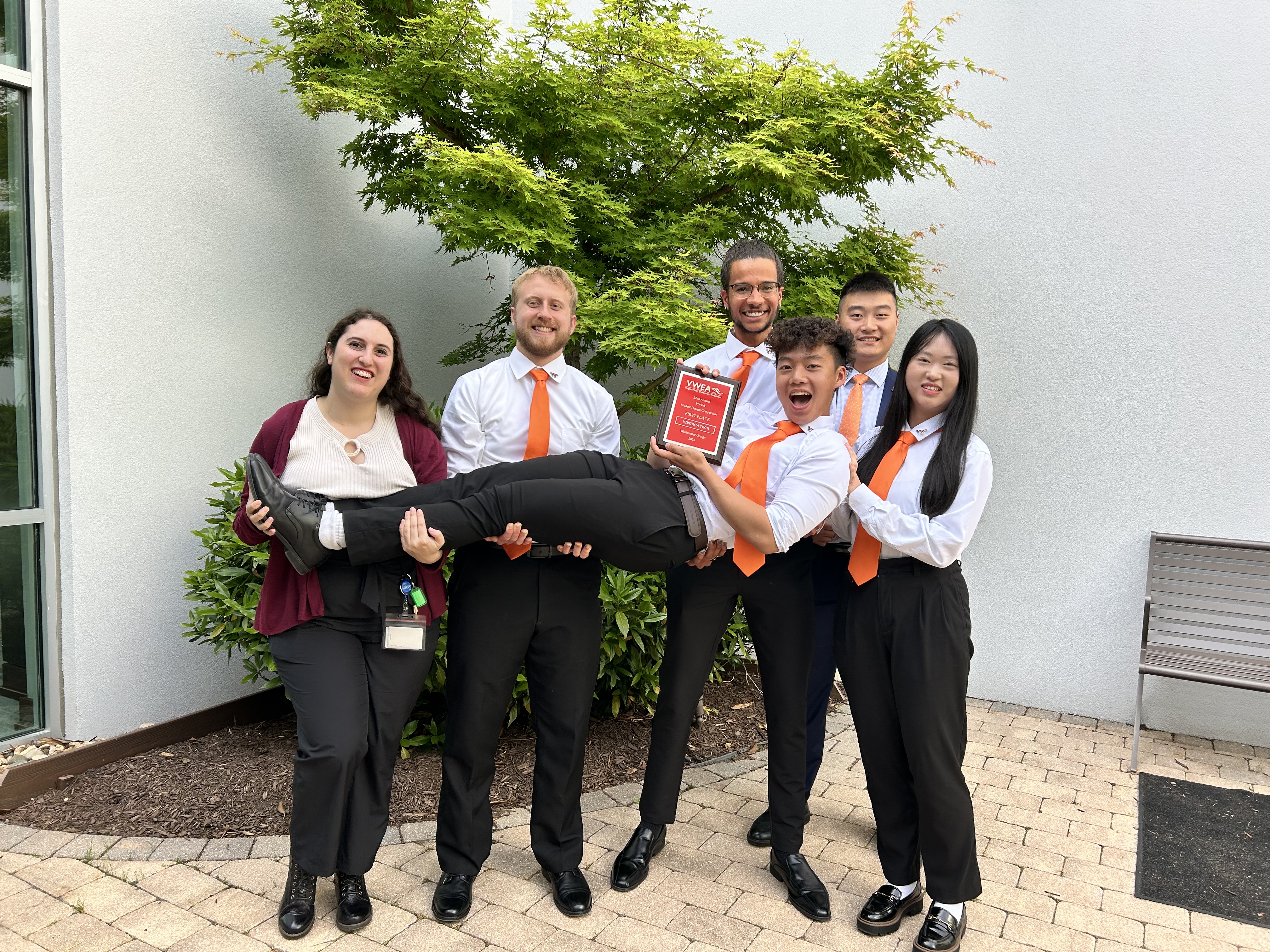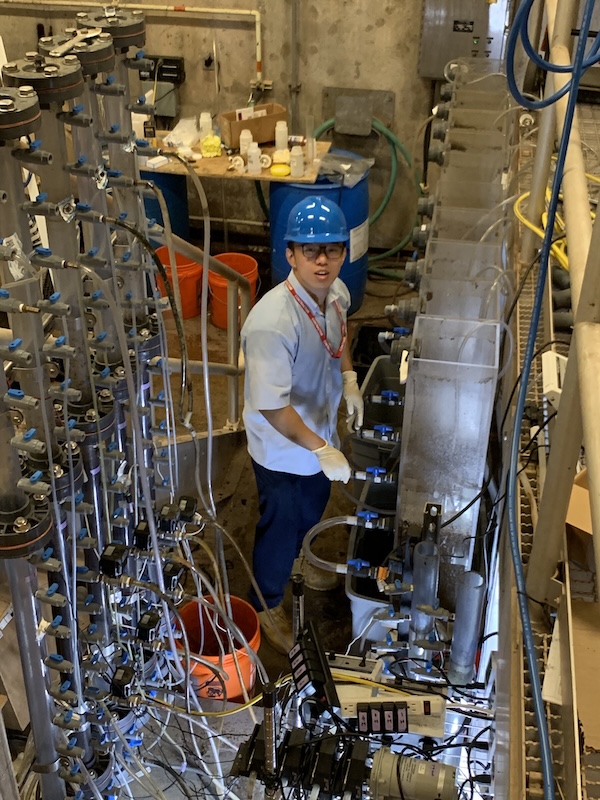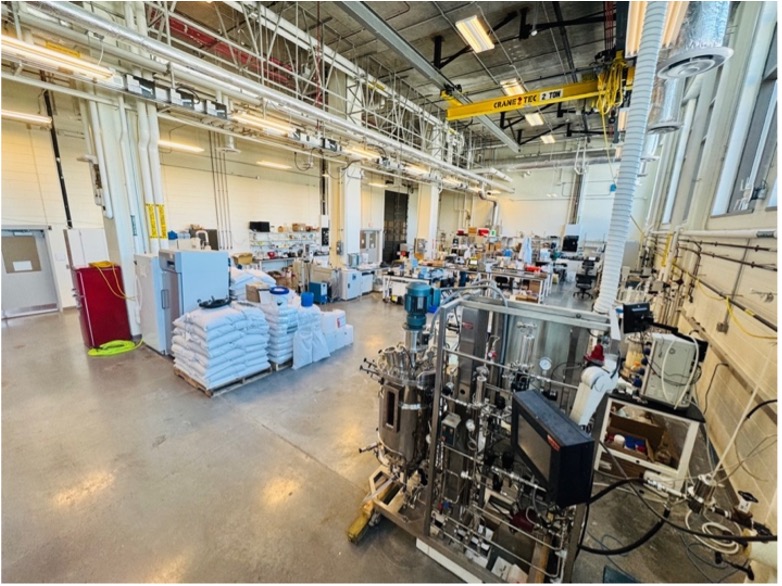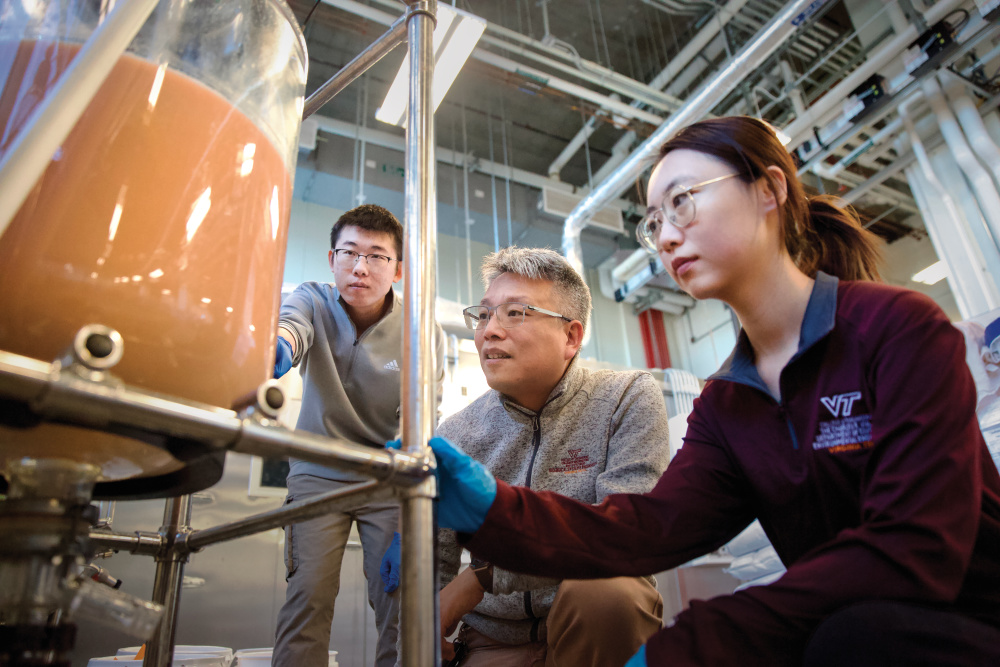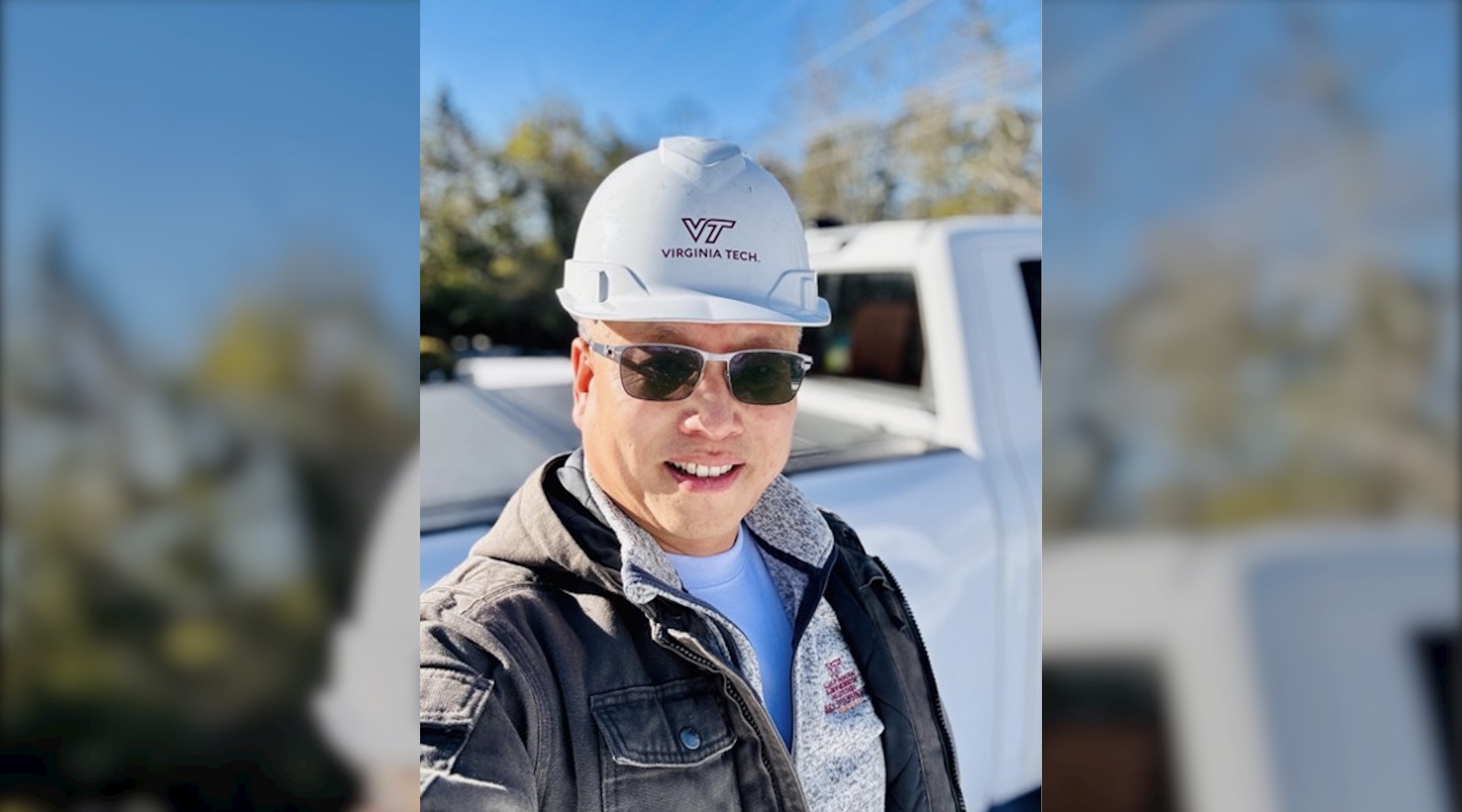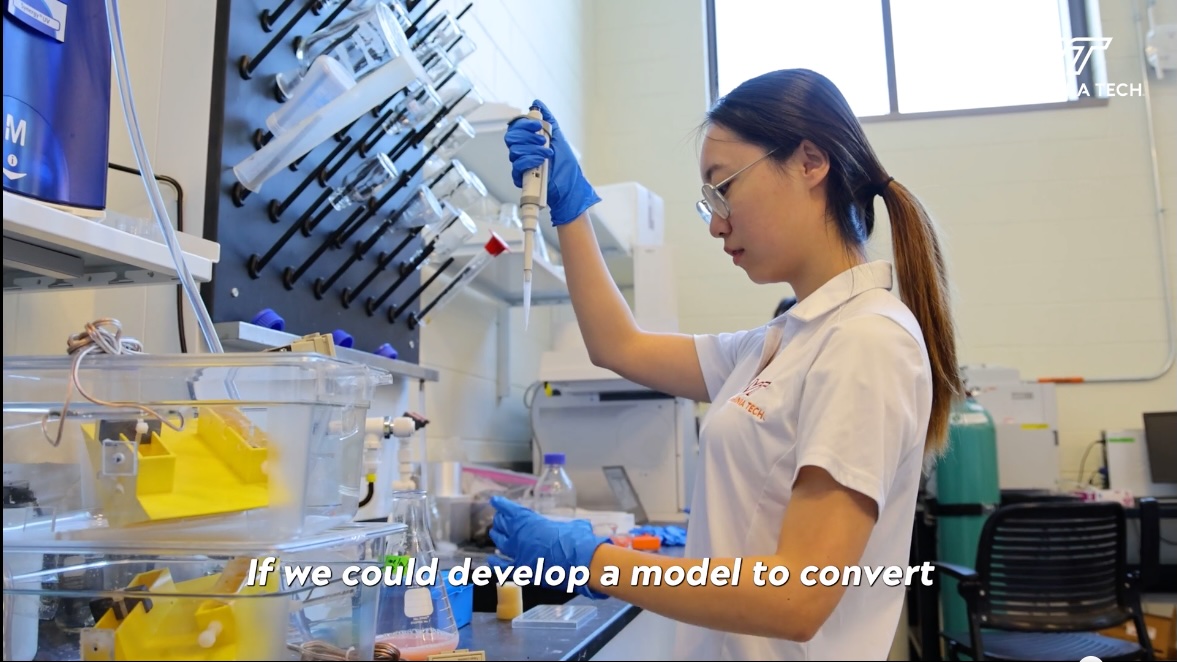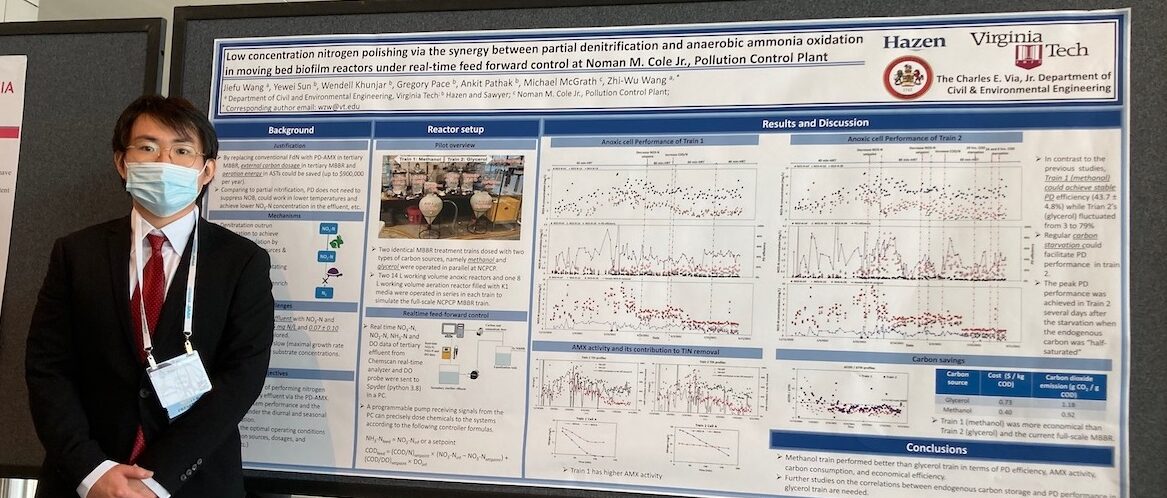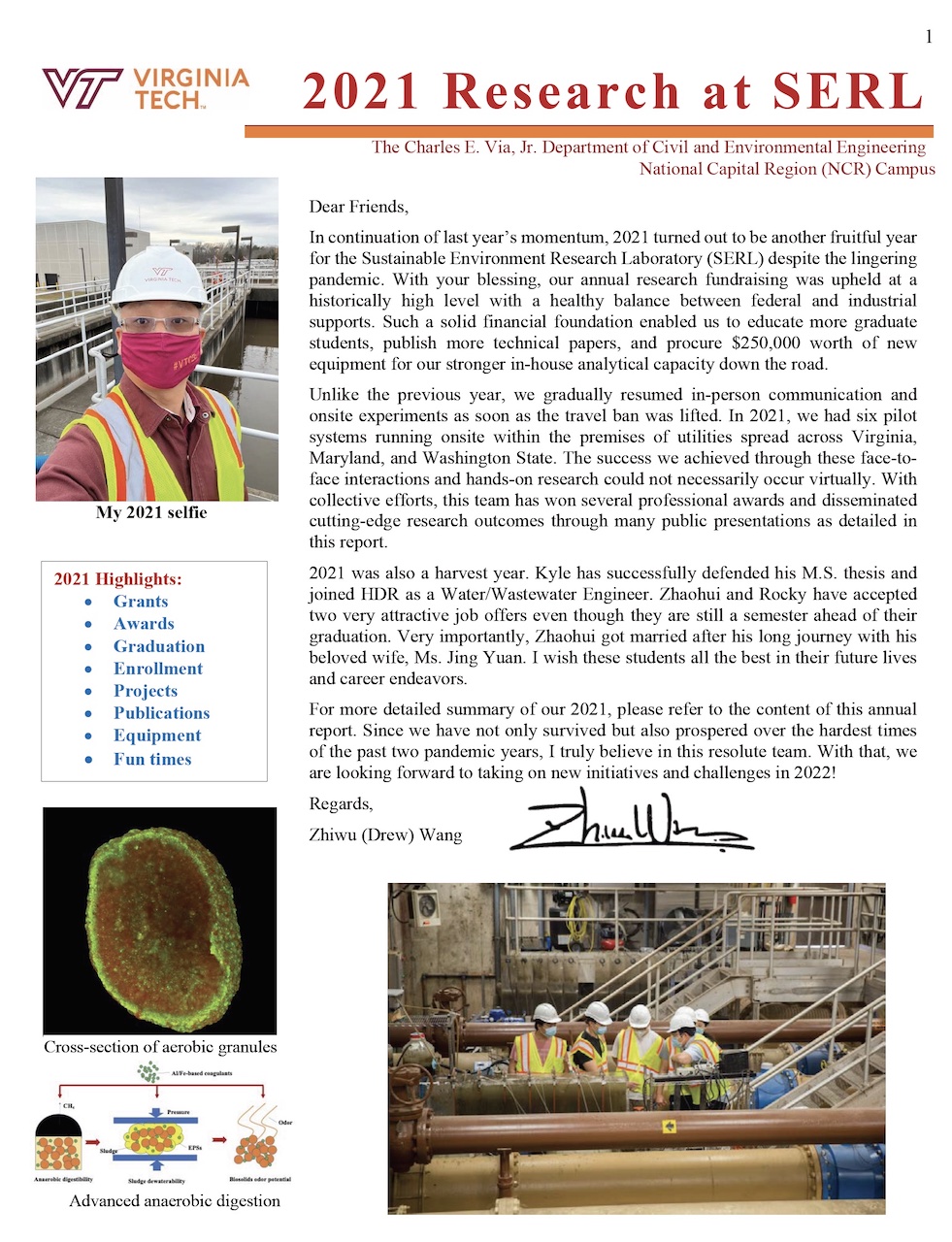Home
Dr. Wang's research seeks to advance environmental engineering and industrial sustainability through the development of innovative biotechnologies for treating liquid and solid waste. His team integrates cutting-edge microbial and biochemical processes to transform waste into valuable resources while mitigating environmental impacts.
Hokie Vision
Dr. Wang's research focuses on developing innovative biotechnologies for converting waste materials into valuable bioproducts. His research encompasses bioplastic production from food waste, bioprocess intensification, low-carbon nutrient removal, emerging contaminant removal, and solid waste anaerobic digestion. By collaborating with industrial partners, his research team aims to address critical environmental challenges, enhance wastewater treatment processes, and promote sustainable resource recovery, thereby contributing to a cleaner environment and advancing the field of environmental engineering.
Dr. Wang's laboratory at Virginia Tech encompasses a 3,227-square-foot high-bay pilot lab in the Human and Agricultural Biosciences Building 1 (HABB1) and a 344-square-foot analytical lab in Seitz Hall. The pilot lab features flexible processing space with quick-connect utilities, walk-in refrigerators & freezers, and pilot space, supporting diverse processing activities. The analytical lab is equipped with a fume hood, biosafety cabinet, and bench spaces for analytical tasks. Both lab house advanced instruments, facilitating comprehensive research in sustainable biotechnologies for waste treatment and resource recovery.
Dr. Wang leads a dynamic research team, focusing on developing sustainable biotechnologies for waste treatment and resource recovery. The team comprises graduate students and research specialists with diverse backgrounds in environmental engineering, food science, and related fields. Together, they collaborate on projects aimed at advancing environmental engineering solutions to address industry needs.





